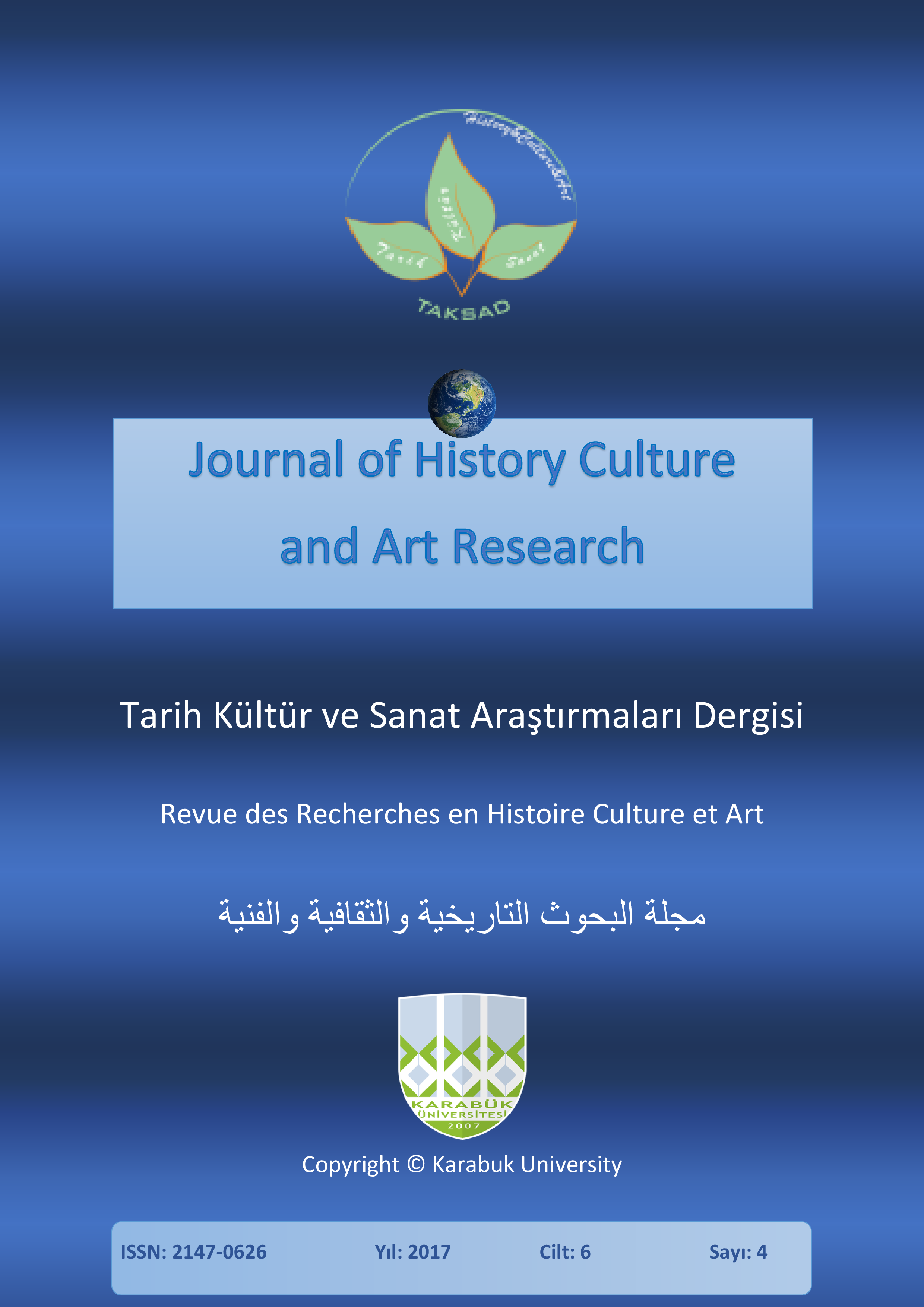Image, Mask and Persona in the Russian Poetry at the Turn of 21st Century
DOI:
https://doi.org/10.7596/taksad.v6i4.1154Keywords:
Modern Russian poetry, Image, Mask, Character, Development trends.Abstract
Poetry at the turn of 20-21st centuries is a heterogeneous and largely unexplored phenomenon. The works, in which the issues of contemporary Russian poetry development are considered systematically, are of fundamental importance. One of the important problems of this period is the tendency to a literary game - including image, mask nature and character in poetry. For all its obviousness, this problem was not studied conceptually. The purpose of this work is to examine the ways of image-making, masking and character in modern poetry and their interpretation from the point of view of genesis. The following conclusions were drawn after the study: 1) Masking and character in poetry are more often manifested in 1980s - 90s (and during an earlier period), whereas 2000s and subsequent years are marked by image-making. 2) The authors of the older and middle generation tend toward masking and character, while the younger, on the contrary, prefer image design (although exceptions are found in all three groups). 3) Masking and character in its origin are the phenomena of the late Soviet era. 4) Image making comes to the forefront during the last period when literature began to experience a serious pressure from the modern media environment, dictating new ways of interaction between a poet and an audience. The performed analysis of these trends determined the final conclusion: the propensity of modern authors to character and masking will continue to decrease, and the impact of image-making will be growing for some time until the change of the social-cultural paradigm from postmodern to another one.
References
Afafnasev, A. S. & Breeva, T. N. (2016). Gender Picture of Peace in Russian Women Rock-Poetry (Poetic Novels «Sprinter» and «Stalker» by Diana Arbenina). Journal of Language and Literature, ISSN: 2078-0303, 7(1), 159-162.
Afanasev, A. S. (2015). Culture code in biographical myth structure (a case study of poem collection «notebook of words» by S.Y. Surganova. Journal of Language and Literature, 6(1), 262-266.
Amineva, V. R. (2014). «Universal» and «Unique» as the Categories of Comparative Literature. Middle-East Journal of Scientific Research, 20(12), 2094-2098.
Bakirov, R. A. & Pashkurov, A. N. (2015). Problem of buildup of literary scholar's scientific sense. Social Sciences, 10(5), 2015, 599-603.
Bowra, C. M. (1952). Heroic poetry. London: Macmillan.
Chuprinin, S. I. (2003). Change of fate. Moscow: UFO.
Domanskiy, Yu. V. (2010). Russian rock poetry: text and context. Moscow: Kulagina Publishing House.
Eliot, T. S. (1945). What is a Classic? London: Faber.
Fowler, A. (1985). Kinds of literature. An introduction to the Theory of Genre and Modes. Massachusetts: Harvard University Press.
Ivanov, V. V. (2006). Mask as an element of culture. Culture through the prism of identity, pp. 27-43. M.: Indrik.
Korman, B. O. (1978). Lyrics of Nekrasov. Izhevsk: Udmurtia.
Levi-Strauss, K. (2000). The path of masks. M.: Republic.
Levin, H. (1972). Grounds for comparison. Massachusetts: Harvard University Press.
Miner, E. (1990). Comparative Poetics: An Intercultural Essay on Theories of Literature. New Jersey: Princeton University Press.
Nikitina, O. CE. (2011). Biographical myths about Russian rock poets. St. Petersburg: Humanitarian Academy Information Center.
Osmukhina, O. Yu. (2009). Author's mask in the Russian prose of 1760-1830s. Dissertation to obtain the status of Philology Doctor. Saransk, 2009.
Reshetnikov, K. Yu. (2009). Shish, philologist and grandfather Pihto. The elements of modern Russian poetry development. Russian reporter. - 16 June 2009, No. 23 (102). http://www.rusrep.ru/2009/23/literatura/
Shtrauss, A. V. (2009). The problem of a lyric hero in modern poetry: the new trends of the 1990s – 2000s. Dissertation to obtain the status of Philology Candidate.: 10.01.01.
Skvortsov, A. E. (2005). A game in contemporary Russian poetry. Kazan: Kazan University Publishing house.
Skvortsov, A. E. (2014). 21 cases of narrative speech. Poetry and poems. Novyi Mir, 11, 191-195.
Skvortsov, A. E. (2014). Look at yourself. Novyi Mir, 5, 150-159.
Skvortsov, A. E. (2015). Intolerant aesthetics. Novyi Mir, 5, 190-193.
Skvortsov, A. E. (2015). Poetic genealogy: studies, articles, essays and criticism. Moscow: OGI.
Skvortsov, A. E. (2015). Storm inside. Novyi Mir, 7, 182-192.
Tomashevsky, B. V. (1999). Literature theory. Poetics. Moscow: Aspect Press.
Zagidullina, D. & Amineva, V. (2016). Avant-Garde Research in the Field of Verse Forms. XLinguae European Scientific Language Journal. Volume, 9(1), 135-145.
Zholkovsky, A. & Shcheglov, Yu. (1987). Poetics of Expressiveness: A Theory and Applications. Amsterdam and Philadelphia: John Benjamins.
Zubova, L. V. (2000). Modern Russian poetry in the context of language history. Moscow: New literary review.
Zubova, L. V. (2010). Languages of modern poetry. Moscow: New literary review.
Downloads
Published
How to Cite
Issue
Section
License
All papers licensed under Creative Commons 4.0 CC-BY.- Share — copy and redistribute the material in any medium or format
- Adapt — remix, transform, and build upon the material for any purpose, even commercially.
Under the following terms:
Attribution — You must give appropriate credit, provide a link to the license, and indicate if changes were made. You may do so in any reasonable manner, but not in any way that suggests the licensor endorses you or your use.
- No additional restrictions — You may not apply legal terms or technological measures that legally restrict others from doing anything the license permits.







